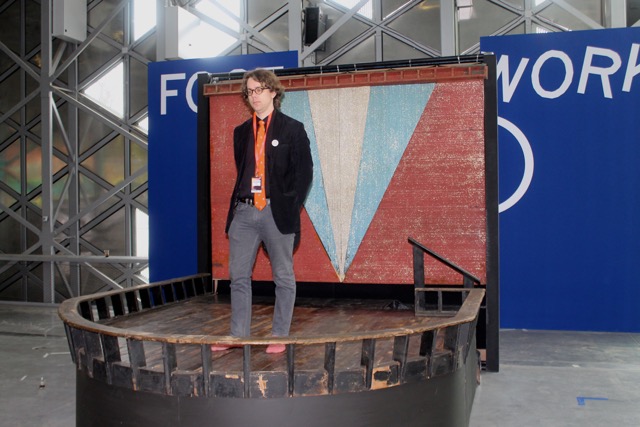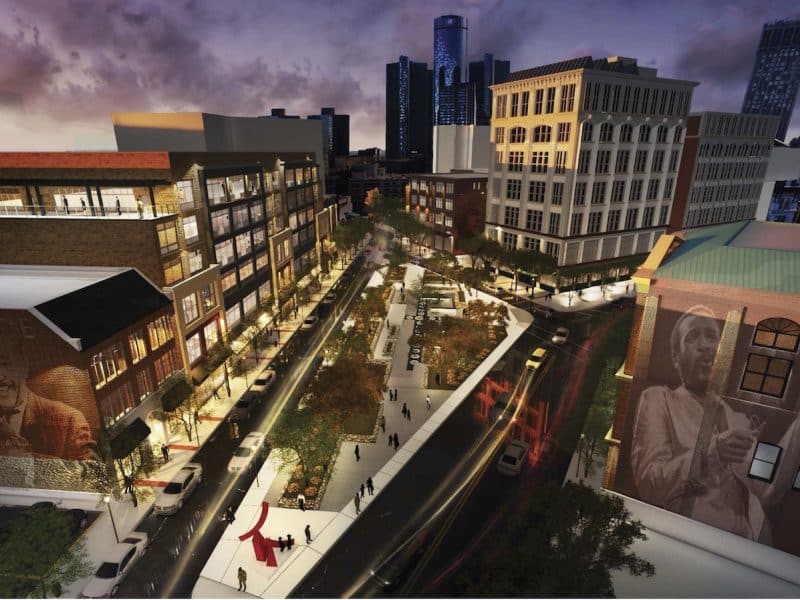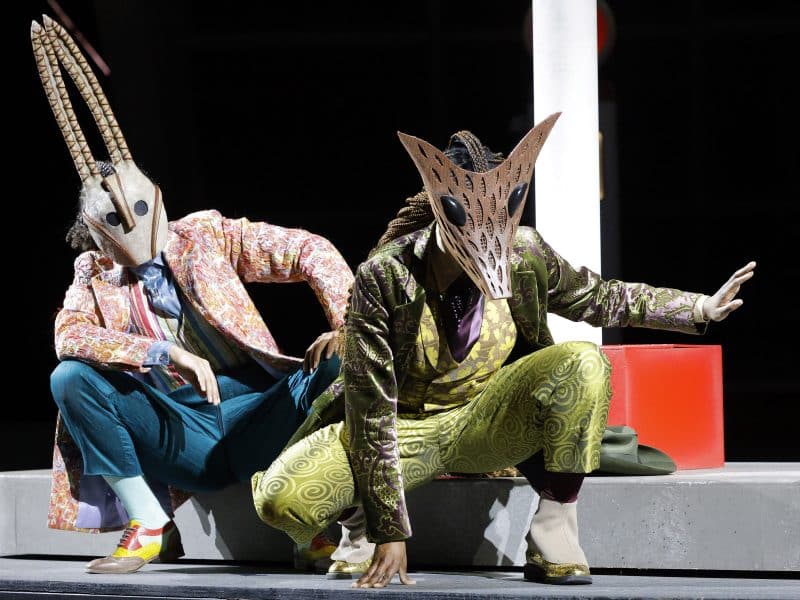Music preservation org saves the Blue Bird Inn stage, an important piece of Detroit music history
In 2015 the Detroit Sound Conservancy saved the Blue Bird Inn's stage, where jazz luminaries like Miles Davis and Charlie Parker played. Now it's being showcased around the world to foster the next generation of sound preservationists.

“That needs to go,” Carleton Gholz said in 2015 to a group of cultural explorers from the Detroit Sound Conservancy (DSC) and Wayne State University anthropology students as they examined the stage of the abandoned Blue Bird Inn jazz club.
There wasn’t a particular design significance to the stage—except that it served as a platform that helped define Detroit’s bebop jazz era. The Blue Bird stage once featured Miles Davis, Cannonball Adderly, Max Roach, Clifford Brown, Charlie Parker, Sonny Stitt, and Detroiters Tommy Flanagan and Pepper Adams.
The Blue Bird, located on Detroit’s near west side, “was so dark, they placed a railing around the stage,” Gholz, executive director of DSC, recalls. “If you were doing your solo you could walk right off the stage. It sort of makes sense design-wise, but it doesn’t look like anything else in the world.”
The tight space barely allowed space to fit a standup piano, drum, upright bass, and two horns shoulder to shoulder.
The DSC was established by Gholz and others to preserve Detroit’s sonic heritage. Gholz, a music writer, had just completed a doctorate in communication from the University of Pittsburgh. In 2012, he wrote in Model D, “We, current Detroiters, former Detroiters, and global lovers of Detroit sound, have had and continue to have opportunities to conserve Detroit’s rich musical heritage not only for us but also to current and future Detroiters. However, many times these opportunities are disparate, uncoordinated, and even ill conceived.”
Gholz says Detroit music lovers find themselves as “refugees from the storm, unable to salvage what they have and so focused on survival amidst the continuing maelstrom.”
With little left of the shell of the Blue Bird, the DSC collective salvaged the peculiar and historically significant stage.
As a relic of the city’s jazz age, the stage fascinated the organizers of the 2017 Art Biennale in Saint Etienne, France this past spring. As all things Detroit find a place on the world’s stage these days, the Blue Bird stage is a piece of period art. “They got it immediately,” Gholz says. “The minute we said it was a jazz stage and Miles played on it, they absolutely got it.”
In August, the stage was placed in surreal repose in the main exhibit hall of the Detroit Public Library, where the DSC held a “Blue Bird Stage Homecoming Celebration,” featuring jazz performances and storytelling. In September, the stage will once again be the focus of sonic preservation at at “DetroitSound4, Sound Design Conference.” The conference will focus on the struggle to preserve sonic spaces like the United Sound Systems Recording Studio and the Blue Bird Inn, and will feature a performance on the restored Blue Bird stage.
After then, it will follow an itinerant schedule, searching for venues to promote performance art. As the largest artifact in the DSC collection, the Blue Bird stage is also its most symbolic, serving as a kind of ark of creative preservation and development, or, according to the Art Biennale program, “a modular and mobile programming experience … to tell the ongoing story of collaboration, creativity, and music in Detroit.”
Over the next five years, the DSC wants to use the stage as a platform for education, storytelling, and performance. “It doesn’t have to be jazz,” Gholz says. Recently, DSC managed fit the 13-member Cornerstone School choir within its guardrails. The goal is to reach much younger audiences whose parents may not have even known about the Blue Bird Inn.
“The trick is how do we activate the next generation of [sound] preservationists,” Gholz says. The stage is the platform for bringing it all together.
The Blue Bird stage has begun an odyssey, severed from its historic moorings in the ruins of a historic jazz club. By creating a unique venue for performance art, it has become a focal point for DSC programming, and a point of departure, evoking the spirit of Detroit’s jazz age and creating new sonic spaces throughout the world.
The “DetroitSound4” conference takes place Saturday, Sept. 9 at the Detroit Creative Corridor Center. Tickets for the event can be purchased here.




